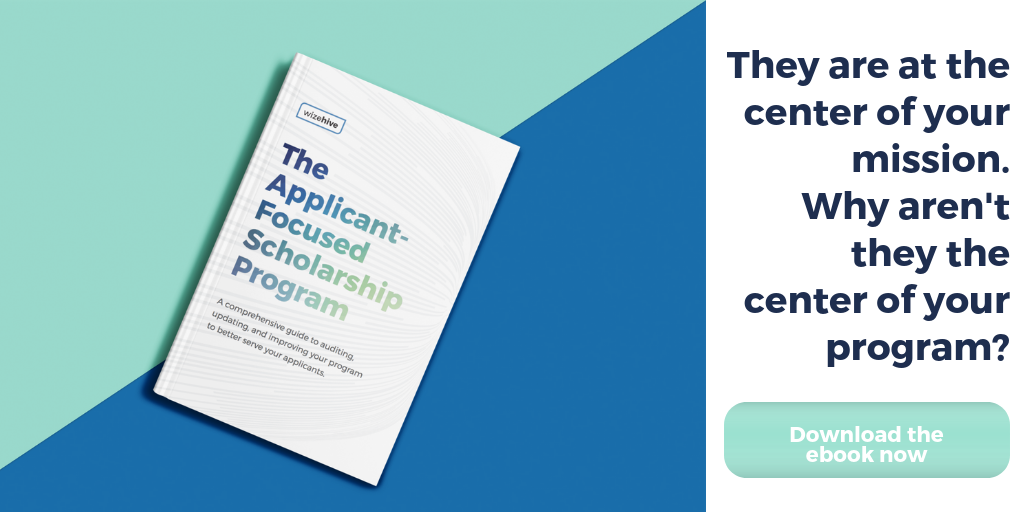New year, new scholarship program? Consider these ways program managers can improve their applications as they plan for the next program year.
The new calendar year also often brings with it a new program year for scholarship providers. While applications may not open up for months, it’s now that you are thinking about all the things you’d like to do for the next go-round. It’s also probably now that you are feeling any pains with your current application and process as you navigate deadlines, reviews, and awards for the current program year.
Hence, this is the perfect time to begin your plans for improvements. Combine your future goals with your current struggles and you should have a good starting list of ways to update for the coming season.
If you currently use scholarship management platform you probably also have access to some intuitive data and reports that could provide some insight.
Consider these areas and look to your reports for more information to improve your program in 2019:
-
Student stumbling points. Do you have questions on your application that are often answered incorrectly, sloppily, or not at all? Revisit the wording to ensure everything is clear, or consider if the question itself is even necessary.
-
Length issues. The more questions, the higher the risk of application abandonment. If your application is too lengthy or requires additional resources, it might be the reason for incomplete applications or a lower number of submissions. We covered a lot of this in Top 4 Scholarship Application Stumbling Points for Students and How to Help Them, but qualifying quizzes, eligibility checks, and different formats for essays are all a good starting place to make your applications less intimidating and increase completed submissions.
-
Duplicate required information. For scholarships, applications typically ask for transcripts and contact information more than once. But this only means more work for the applicant, reviewers, and program manager. Take a look at the number of times you ask for duplicate information and consider creating a way to reuse this information. For instance, when offering multiple scholarships, if the same student is applying to every scholarship your organization offers, they should only include their transcript and contact information once (usually required information in every application). There’s no need to enter this information multiple times. This will improve the applicant experience, reduce errors related to manual data entry, and increase completion rates.
-
Required formatting and clearer error messages. Mistakes happen and some questions can be harder to complete. That’s where tools, help documents, and troubleshooting come in. Create custom error messages for common mistakes you see in your completed applications, or require proper formatting within fields to ensure applicants are providing you with the correct data. Examples could include word count trackers for longer-form questions or requiring email address fields include the @ symbol followed by an approved extension.
-
Support request emails and phone calls. Look over the year’s emails and call logs to see what the biggest questions and complaints were from your applicants. Any trends you see are issues that should be addressed as you move forward.
-
Follow-up issues. Do applicants know when their application has been submitted successfully? Do they know the next steps after receiving an award? Consider the ways in which you could more clearly communicate with them, be it via automatic emails, texts, or a clear post-award to-do list and form within the submission portal.
-
Administrator slow downs. Talk to your staff - everyone who touches the program from the administrative assistant to the executive director. What do they wish was easier or clearer? Are there automations that would eliminate manual work, integrations that could more cleanly share data, or reports that you could create to give better insight into status or impact?
-
Past awardee insights. Look at the scholars you have currently going through your program - how are they doing? Are they struggling with things that you could help with, or that you could have identified better within the initial program application? Are there things you wish you had known about them sooner? Also, consider surveying recent awardees about their application experience, and take their feedback to heart. Their fresh eyes and perspective may help you rework outdated questions, add new opportunities for getting to know applicants, and make your program more attractive to the next generation.
